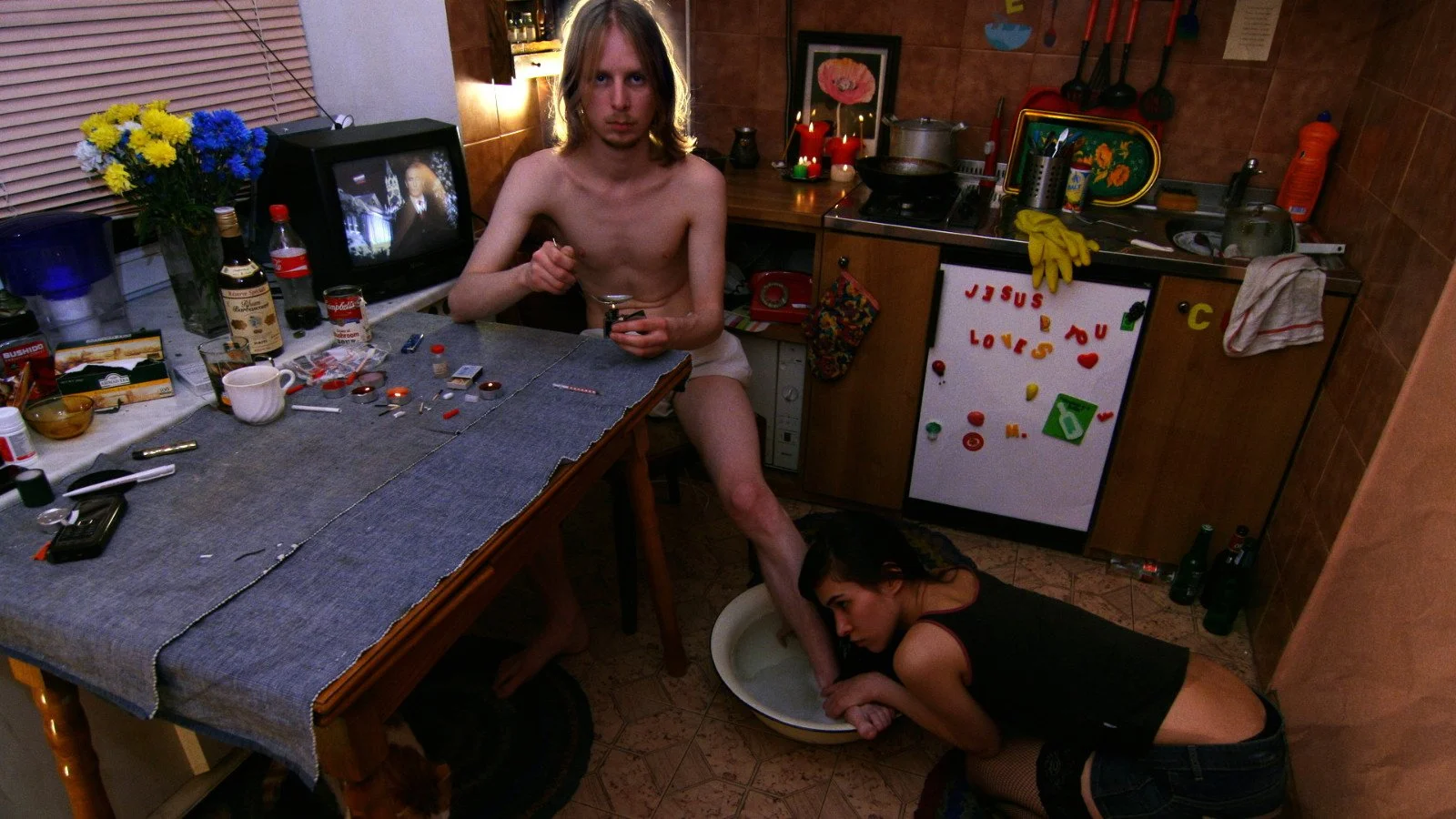Rendezvous With Madness: Festival Marks Its 30th In the Year of Collective Mental Crisis
By Liam Lacey
Rendezvous With Madness, “the first and largest arts and mental health festival in the world,” is celebrating its 30th anniversary in a year when the idea of a collective “mental health crisis” is resounding through the media.
How To Save a Dead Friend
From the World Health Organization to the medical journal The Lancet, there are reports that depression and anxiety are on the rise — or at least getting more attention — everywhere. If we didn’t have enough to worry about (see war, pandemic, climate change, resurgent fascism), there’s spiralling anxiety about anxiety itself. According to a recent CNN poll, 90 percent of Americans can agree on at least one thing: the country is experiencing a national mental health crisis.
The subject of mental health is, unsurprisingly, not well-covered by Hollywood movies. A report from USC Annenberg Inclusion Initiative released in May says that fewer than two percent of top box office films include characters with mental health issues. Though the comparison is artificial, Anenberg contrasts that number to the estimated 21 percent of Americans who experience mental illness.
A timely documentary relevant to our collective anxiety to this year’s Russian invasion of Ukraine is the opening-night film, How to Save a Dead Friend. This 12-year-long diary film by Russian filmmaker Marusya Syroechkovskaya follows a youthful love affair with a young man named Kimi, amid a love of Nirvana, Joy Division, drugs and political protests, gradually descending into an abyss of substance abuse and eventual suicide.
The youthful romantic and tragic elements of the story could be the material of serious Young Adult fiction, but it’s also a document about the filmmaker’s artistic and personal maturation, with a wryly bleak vision of what it means to be young and creative in what she calls the “Depression Federation” of Putin’s Russia.
Out of the 13 feature films in this year’s festival, only two are dramas. These include My Emptiness and I (Mi Vacio y Yo) by Spanish director Adrián Silvestre. The film follows a young trans-gender French woman’s experience in transitioning in Barcelona, and features a winning performance from Raphaelle Pereza, who also contributed as a writer. But the film is essentially didactic, something you might show in health class at a very progressive high school.
Falling between performance documentary and fiction is Amir Azizi’s Two Dogs which follows a series of absurd, downbeat vignettes in the lives of two 30-year-old Iranian friends: playwright, translator, and cab driver Sajaad and Iman, an anxiety-plagued musician who’s obsessed about his crooked jaw line. The film incorporates elements of Franz Kafka, deadpan humour, intractable family conflicts and devotion to pets.
Two Dogs
Two relatively conventional documentaries are structured around a series of counselling sessions. Vedrana Pribacic’s Bigger than Trauma follows a group of Croatian and Serbian women working through the life-altering trauma of war and sexual assault by sharing their experiences in group therapy. The Danish TV documentary Love Bound: When Your Child Becomes Mentally Ill, follows a half-dozen parents through a series of counselling sessions, as they struggle with the stress of mental illness in the family and the guilt of setting boundaries with their adult children.
Most of the other films in this year’s selection are less about specific psychiatric disorders than the challenges of working and living in precarious times. “Life is hard,” is the opening voice-over in Lee Yong Chao’s Rain in 2020, an understatement in a film set in rural Myanmar amid the dangerous work of jade mining, COVID lockdowns, and the flooding that filled the streets and led to a mudslide that took more than 100 lives.
Trauma and survival are the themes of Delphine’s Prayers (Les prières de Delphine), a documentary that consists of a series straight-to-camera monologues from Delphine, a 30-year-old Cameroonian mother living in Belgium, who tells her life story to her friend, director Rosine Mbakam, recounting teenage sexual abuse, homelessness, sex work and a marriage of economic necessity to an older European man.
Exile is also a theme in Columbian Canadian director Lina Rodriguez’s My Two Voices (Mis Dos Voces), a 68-minute experimental documentary that creates a chorus of voices, textures and sounds, with an off-screen narration that weaves together the stories of three immigrant women dealing with cultural bereavement.
Two films deal with physical disability and stigma. Disability activist filmmaker Reid Davenport’s I Didn’t See You There is a wheelchair point-of-view diary about the stigma of disability, which was at Toronto’s Hot Docs festival in April. (It also won a Documentary Directing Award at Sundance). Davenport, who has cerebral palsy, comes from Bethel, Connecticut, birthplace of P.T. Barnum, who put people with disabilities on display as “human curiosities.”
His film was inspired by seeing a circus tent in his Oakland neighbourhood. There’s no indication that Davenport has any mental health issues, apart his impatience with able-bodied indifference to his needs: A rude transit worker, a patronizing neighbour, unwanted invitations for assistance, and an electrical cord across the access ramp to his apartment.
Eat Your Catfish is a documentary about living with the terminal neurodegenerative disease amyotrophic lateral sclerosis (ALS) with Kathryn Arjomand providing computer-aided voice-over, and her adult son, Noah Arjomand as one of the three directors. Sometimes funny but determinedly unsentimental, the film shows the often-bitter struggles within Arjomand’s family and her determination to make her own life choices as long as she is able.
On the narrower question of issues related to mental health, there are two films by activist filmmakers which deal with stigmatized people and the police. (The most obvious difference from mainstream journalism is that neither filmmaker interviewed anyone from law enforcement.). Tim and Gemmel relates the story of two victims of Ed Buck, a wealthy gay white donor to Democratic, LGBTQ and animal rights causes, who was sentenced to 30 years in jail this past April.
Buck injected Black gay men with incapacitating doses of crystal methamphetamine before sexually assaulting them. Tim Dean and Gemmel Moore were two of his victims who he killed with lethal doses. The film, narrated through interviews by the two men’s friends and activists on their behalf, depicts a Los Angeles police force and political establishment that found it far too easy to ignore the deaths of gay, sometimes drug-dependent, Black men.
The festival closes with a home-grown exercise in citizen journalism, Luke Galati's debut feature-length documentary, When We Reach Out: Who Will Respond? which recounts his 2017 experience when his mother called the police to intervene during his bipolar episode — and thanked the cops for not shooting him.
Galati’s film recounts cases of people with mental illness dying because of police interventions and, through interviews with those who have studied or had experience with the issues, makes a persuasive case for alternatives to the police when handling mental health-related emergencies, such as the pilot Toronto Community Crisis Service program. The program, started in April, is in its toddler days, but it could be a step toward taking some of the fear from of the phrase, “mental health crisis.”
The Rendezvous with Madness festival of films, live performances, and visual arts takes place from October 27 to November 6. Films are available streaming online across Canada and in person at the Hot Docs Ted Rogers Cinema and other venues in downtown Toronto. All tickets are pay what you can. For a complete list of events and to order tickets go the RWM online box office.




